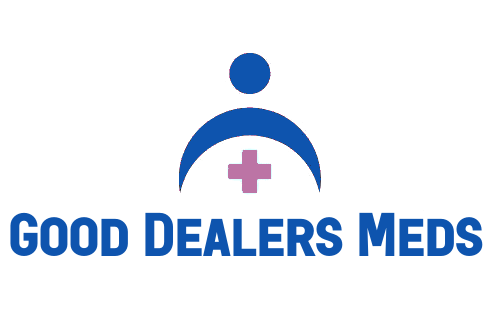What Are Stimulants
Stimulants are a type of psychoactive substance that improves physical or mental functioning temporarily by enhancing mood and improving sensations of well-being, energy, and alertness. Stimulants are commonly referred to as “uppers.”
Stimulants accelerate mental and physical processes, which can have positive short-term effects via raising dopamine levels in the brain. The short-term effects of stimulants can make users feel wonderful, but long-term abuse of these drugs can have serious bad consequences. For this reason, it is crucial for persons who abuse these drugs to seek help as soon as possible.
Stimulants can be taken as tablets, capsules, powders, tiny chunky clear crystals, or a white or brownish crystal-like powder with a strong odor and harsh taste.
What Drugs Are Stimulants
There are various forms of stimulants that people utilize. Some of them, like coffee or pseudoephedrine, are common and accepted in society. Some people continue to use the addictive stimulant nicotine on a regular basis.
Other stimulants include:
- Amphetamines
- Cocaine
- Ice (Crystal Meth)
- Khat
- Methylphenidate
There are further two types of Stimulants:
Prescription Stimulants
People with attention deficit hyperactivity disorder (ADHD), narcolepsy, and as dietary supplements frequently use prescription stimulants. They also reduce hunger while improving alertness, energy, and attention span. Amphetamines and methylphenidate are the two types of prescription stimulants that are used most frequently.
The most typical types of stimulants on prescription include:
- Adderall
- Dexedrine
- Concerta
- Ritalin
- Desoxyn
- Ephedrine
- Modafinil
You can buy stimulants online from our store without any prescription.
Illicit Stimulants
For many years, abusing illegal stimulants has been a widespread problem. They are frequently made in secret laboratories using a mixture of legally prescribed stimulants and naturally occurring botanicals, such coca leaves.
Contrary to prescription stimulants, which are intended for a slow release into the body, illegal stimulants result in a quick-acting, powerful high with a short half-life. When crushed and snorted or injected directly into the bloodstream, prescription stimulants can be abused in the same way as illicit ones. The most common forms of illicit stimulants include:
- Powder Cocaine
- Meth (Methamphetamine) or Crystal Meth
- MDMA
Types Of Stimulants
Natural Stimulants
Natural stimulants are substances that boost central nervous system activity and can be found in plants, roots, or other natural sources. They can also help you become more calm and focused while balancing your mood.
We have listed here 13 different type of Natural Stimulants:
- Ginseng
- Yohimbine
- Theobromine
- Bitter Orange
- Theanine
- Yerba Mate
- Ginkgo Biloba
- Guarana
- Cordyceps
- Schizandrol A
- Phenylethylamine
- Green Tea
- Rhodiola Rosea
ADHD Stimulants
Self-control, attention, working memory, and creative thinking can all be impacted by ADHD. Medications that work on specific brain chemicals linked in ADHD, such as dopamine and norepinephrine, may help people control their symptoms.
Following are the stimulant drugs available to treat ADHD symptoms:
- Amphetamine
- Methylphenidate
- Dexmethylphenidate
- Lisdexamfetamine (Vyvanse)
- Dextroamphetamine
- Dexmethylphenidate (Focalin)
- Amphetamine (Adderall)
Appetite Stimulants
A poor appetite can negatively impact growth and neurodevelopment. An appetite stimulant is a chemical that enhances hunger and food consumption. Malnutrition, eating disorders including anorexia, and adverse effects from other medications/conditions that decrease hunger can all be treated with appetite stimulants. Appetite stimulants are drugs that are provided to patients who are experiencing substantial weight loss as a result of certain chronic conditions in order to enhance appetite and improve nutritional status.
The different types of appetite stimulants available, listed below:
- Corticosteroids
- Megestrol Acetate
- Oxandrolone
- Dronabinol
What Do Stimulants Do
You may be wondering how stimulants affect the brain. When someone uses stimulants, their brain changes particular cell signaling patterns and enhances a number of physiological processes both inside and outside the brain.
The amount of dopamine in the brain is frequently affected by stimulants, which results in feelings like heightened alertness and focus, more energy, and a sense of wellbeing.
You can buy stimulants online from our store without any prescription.
Effects Of Stimulants
The long-term consequences of stimulants, which can be extremely severe given how potent they are, can lead someone to start abusing them. Despite the unfavorable effects, this results in strong drug cravings and addiction.
How Long Do Stimulants Stay in Your System?
The duration of a stimulant in your system is determined by several factors, including the dosage you are taking, your metabolism, age, strength, and overall health. The following is a general guideline for how long it will persist in your system:
- Amphetamines, which make up the majority of ADHD drugs, often have a half-life of fewer than 11 hours.
- Cocaine typically has a half-life of less than one hour.
- The symptoms of being high on meth can persist for up to eight hours, while methamphetamine has a longer half-life of about 12 hours.
Long-Term Effects of Abusing Stimulants
Utilizing stimulants can have effects that go well beyond the initial high. Many users put the now ahead of the long term in favor of an intense high, but the dangers of continued usage should not be disregarded.
Long-term physical effects of stimulant abuse include:
- Extreme weight loss
- Reduced sexual functioning
- Gastrointestinal problems
- Muscle deterioration
- Chronic exhaustion
- Cardiovascular damage
- Breathing problems
- Headaches
- Cerebral hemorrhage
- Stroke
- Seizure
The harmful effects of stimulant usage must be understood because they highlight the grim reality behind the euphoric stimulant high.
Stimulants Abuse Treatment
Although it is rarely a life-threatening process, withdrawal from amphetamine usage can be painful. The physical and psychological effects of stimulant withdrawal might be challenging to handle on your own, but professional treatment can assist.
Admitting that you are battling with stimulant usage can be challenging, but it’s crucial to be honest with yourself and seek help as soon as possible at a treatment facility. The sooner you can recognise that you need help, the sooner you can lay the groundwork for your recovery.
Professional treatment can include:
- Inpatient programmes, where the recovering person spends a significant amount of time in a sober environment, regularly attends therapy and counseling, and exercises coping mechanisms.
- Outpatient programmes, which let the patient live at home and carry on with their regular daily activities while regularly attending therapy and counseling sessions at the facility.
- Therapy specifically tailored to help recovering stimulant users.

